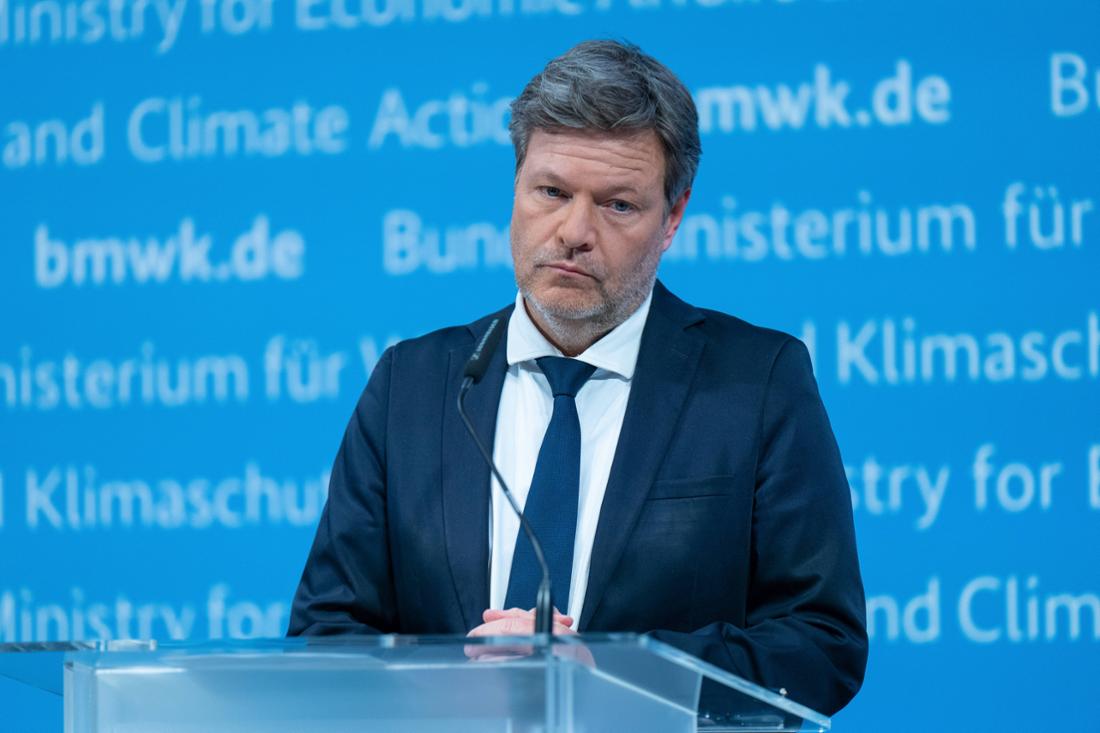Germany’s finance minister announced today that the country is currently stagnated, with economic statistics indicating a decline in several industries. Job losses are on the rise. According to Robert Habeck, the German government’s prediction for economic growth in 2024 has been lowered downward from 1.3% to 0.2%.
This means that Europe’s largest economy has basically stagnated, albeit without entering a full-fledged recession. Mr Habeck has described Germany’s economic position as “dramatically bad”.
Today, he stated that Germany faced a “very specific situation” as a result of Putin’s complete invasion of Ukraine because its energy-intensive businesses relied on Russian gas.
Germany’s reliance on exports made it especially sensitive to changes in global trade patterns, he added, and the German economy’s bigger structural problem was a labour shortage. Mr Habeck claimed that without migrant workers, Germany’s economy would collapse.
Recession in Germany
Energy expenses skyrocketed following Russia’s complete invasion of Ukraine two years ago. This resulted in inflation, which means that households are under pressure.
According to a warning from Germany’s central bank, the country may already have entered a recession. The German economy declined somewhat in 2023, contracting by 0.3% in the fourth quarter of that year.
According to the Bundesbank’s monthly report, “stress factors” are likely to persist, and economic output may “decline slightly again in the first quarter of 2024”.
Two consecutive negative quarters would push Germany into a so-called technical recession. Given that the German economy is expected to grow somewhat in 2024, economists do not anticipate a full-fledged recession.
Inflation rates are presently falling, unemployment remains low, and energy costs have decreased, implying that economists anticipate the economy to gradually recover this year. Despite dismal predictions, Germany was able to smoothly transition away from Russian gas without the lights going out.
After years of stagnation, wages in many industries are increasing, which should improve consumer demand. However, businesses remain pessimistic. André Kasimir, owner of building business Kasimir Bauunternehmung, said Germany is on its way to becoming the “sick man of Europe.”
The government does not have a clue what to do
According to industry figures, the sector is in crisis because to high lending rates, skilled workforce shortages, and the country’s well-known bureaucracy. Construction insolvencies increased by more than 20% in 2023.
Despite a dire housing crisis in locations such as Berlin, bosses claim building new homes has become “practically impossible”.
Construction projects take much too long to be approved, and Mr Kasimir believes heating and noise rules are too expensive. “The government does not have a clue what to do to make it easier for us to build and to live,” he told the BBC.
According to business leaders, political infighting is the root cause of many of the country’s economic problems.Politicians are at odds over the government’s proposed economic stimulus package.
Mr Habeck has proposed legislation that would reduce bureaucracy and provide German businesses billions of euros in tax savings. The measure has passed the lower house of German parliament, the Bundestag, but opposition conservatives in the upper chamber are blocking it.
Squabbling within Chancellor Olaf Scholz’s divisive three-way ruling coalition has also annoyed voters, resulting in the government’s lowest poll ratings on record.
When the constitutional court determined that the government’s budget was unlawful, initial intentions to hide policy disagreements with excessive expenditure were foiled.
Constitutional debt limitations
Government officials disagree on the answer.Economy Minister Robert Habeck’s Green Party proposes to change constitutional debt limitations to allow for more infrastructure expenditure.
The liberals who dominate the finance ministry regard low debt as sacred and are pressing for harsh austerity measures. According to Professor Stefan Kooths of the Kiel Institute for the World Economy, the coalition’s clear splits are causing a lot of “uncertainty”.
Deep dissatisfaction with the political class is common on the streets of Germany’s capital.
“We fell asleep, especially under Angela Merkel’s government,” recalls Cathrin, a Berlin resident. “So I think we have to catch up against the big economies like China.”
Elmedina, an architecture student from Kosovo, is considering her future in Germany due to a lack of excellent career options. “I had an idea that I would be able to live a better life… but I’m not so satisfied with what Germany has to offer right now.”






